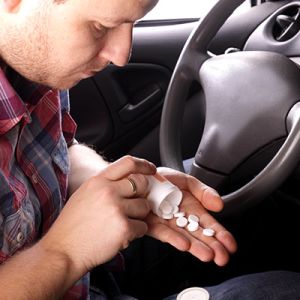Drug Driving, As Dangerous As Driving While Under The Influence Of Illegal Drugs
Drug driving means driving while under the influence of prescription or over-the-counter medications that bear warning label of potential impairment. Pharmacists dispense nearly 275 million prescriptions annually, not including what hospitals dispense. Many medications that require a warning label clearly state that consuming these medications may cause impairment.
Warning labels properly advise against users operating a vehicle while under the influence of a particular medication. Pharmacists even provide a verbal reminder of these  dangers when consumers purchase these prescription medications. However, patients often self-assess their impairment or are overly confident in their assessment, and proceed with driving a vehicle regardless. This decision essentially makes them as dangerous as someone driving under the influence of illegal drugs. It can be difficult for anyone to determine his or her level of impairment and when it is or is not safe to drive.
dangers when consumers purchase these prescription medications. However, patients often self-assess their impairment or are overly confident in their assessment, and proceed with driving a vehicle regardless. This decision essentially makes them as dangerous as someone driving under the influence of illegal drugs. It can be difficult for anyone to determine his or her level of impairment and when it is or is not safe to drive.
Popular opinion of consumers is that impairment from certain medications is only caused when taken in excess, but that simply is not the case. Impairments include drowsiness, increased reaction time, shakiness that effects coordination, and the inability to focus. Even worse, pair these medications with alcohol and the results are even more risky. When using these medications that bear a warning label, operating machinery, a bicycle, or a vehicle is simply not safe.
Another problem is the rise in medications that are now available without a prescription. Dr. Tanya Smith of the Queensland University of Technology and road safety researcher warns against medications becoming available without a prescription. This means consumers are missing out on the chance of receiving a verbal reminder that certain medications they may be taking could cause impairment. Instead, consumers are relying more on labels, and it is less likely that they will adhere to these labels. Because individual responses regarding impairment vary, further research is needed to understand the scope of medications and their effects on impairment.
Queensland University of Technology. “Drug driving: Are your meds affecting you?.” https://www.qut.edu.au/health/about/news/news?news-id=99964

